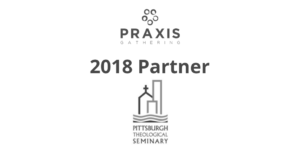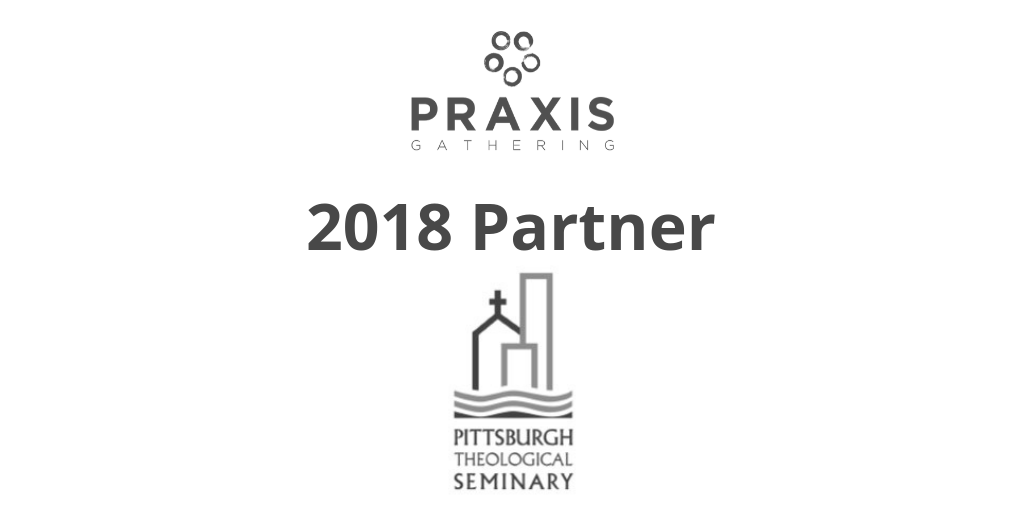Our friends at Pittsburgh Theological Seminary have been Praxis partners for many years and we were thrilled to have them partner again with us in 2018. Here Rev. Karen Rohrer, Director of the Church Planting Initiative shares important themes to consider in church planting.
How can faith be found inside of empire? The book of Acts takes pace in empire—the Roman Empire—and this not a fact that we should ever let escape our attention. The goal of the Roman Empire was to shape the world in its own image. This is always the goal of empire. Rome understood its task as the reconstruction of land, space, and life under its rule. This was a civilizing mission at its deepest level where construction of place would mean reconstruction of life.– Willie James Jennings, Acts: A Theological Commentary on the Bible
“To shape the world in its own image” is a phrase that resonates with me—I think largely because I’m convinced that that is what we do as the church when we are at our worst. Because I work in the church planting world, I end up behind the scenes of conversations that sound like, “But, can we really help support that church, given that their theology is so different from ours?” or “Yes, being diverse is important, but how can we forget our heritage?” or “Those songs just don’t fit the kind of worship experience we are used to.”
Other Conversations
Up until I came to do this work, those kinds of conversations had either mildly annoyed me, or reflected my taste and therefore not bothered me too much. In fact, I have certainly been guilty of wondering aloud whether or not a church that rejected women in leadership was really a good partnership for any group I’m a part of. Shouldn’t all new churches reflect a place for me in leadership? (spoiler alert—I am a young, white, urban, over-educated, straight woman—they should *absolutely* not.) So, reading Jennings commentary—which I highly recommend—was a bit of a gut punch.
What makes empire empire is the goal of shaping the world in its own image. Right. And how is that different from my church of origin? How is it different from the missionary commitment that makes its first goal someone else’s conversation, rather than one’s own continued conversion borne out in the healing of our life together?
A Contextual Approach
At the Church Planting Initiative here at PTS, we’ve been thinking a lot about this, and teaching from Jennings commentary this term has put this truth in even more stark relief. From my start at the seminary, we have wanted our students to be trained contextually. While we use sociological data, we are intentionally not a part of the “Church Growth” movement—indeed if our students end up leading megachurches, it will not likely be because of their training here.
The practices we encourage students to order their churches with do not scale quickly, as a general rule, and are not targeted at folks who are already Christians or have significant knowledge of or history within the church. Rather, these practices are ordered around longing to hear and discover the stories of individuals and neighborhoods that we don’t yet know.
Those new stories bear the Gospel to us in ways we have yet heard, and remind us that God works through and with others just as God works through and with us. Indeed, our whole curriculum at the seminary is informed by the belief that the church is reformed and always reforming, which means, in short, that we are not the Holy Ones and we are not necessarily even the right ones. We are those who need God to come again to us, every moment, every week, every Christmas, in new ways and in new frames, so that we might see again the upending truth of the Gospel. An empire made from us would be monstrous.
Welcomed Suprise
Instead, we are at our best when we are always preparing for the person in front of us to bear the Gospel to us, so that we might recognize it anew and change our lives accordingly. This posture means that we must be open to surprising people bearing the Good News of Jesus. This includes women. This includes LGBTQ people. This includes direct experiences of the Holy Spirit herself. As the brilliant and rigorous Simone Weil says, the point is to order our lives around “waiting for God.”
We stand in the midst of a colonial system in American (Anglo) Protestantism and while that is not something we can wash off, or simply declare ourselves beyond, we hope to equip our students with a hunger for joining with and learning from the people they serve, sharing the lives and concerns of their communities, and listening well to them, whether or not they are likely to join said student’s church or any church.
Table Rather than Empire
We are convinced that church planting is not about the replication of the church as we know it, as some sort of empire, but rather the process by which we will be drawn to our neighbors and thereby drawn to God. All of this is to say, the rightness of our, your, or any particular student’s take on a theological difference cannot really be of defining consequence to us, but is in service to living as and in search of Good News among any community in which we might find ourselves. The church was not made to be an empire, but rather the people of the table—a people who are hungry again for the grace to face all that comes ahead for us. Just as it was for Jesus’ disciples, the table is not set by us, it is set for us. Our work is to remember that we come not as experts, but as those who are hungry.

Share this Post

